Shōgun delivered a powerful finale with Episode 10, once again subverting viewer expectations with a story that demonstrated the power and purpose that one life has – as well as the dark void of grief that binds people who have all lost someone they love.
Videos by ComicBook.com
As fans on Twitter are already pointing out, the Shōgun Finale also pulled off the deeper thematic feat of bringing so many things in the series full circle, showing just what a journey (mental and spiritual, if not physical) the characters had been on.
Scroll below for a breakdown of powerful callbacks in the Shōgun Finale (hat tip to @clonehumor for the social media detective work):
Dead Men’s Tales
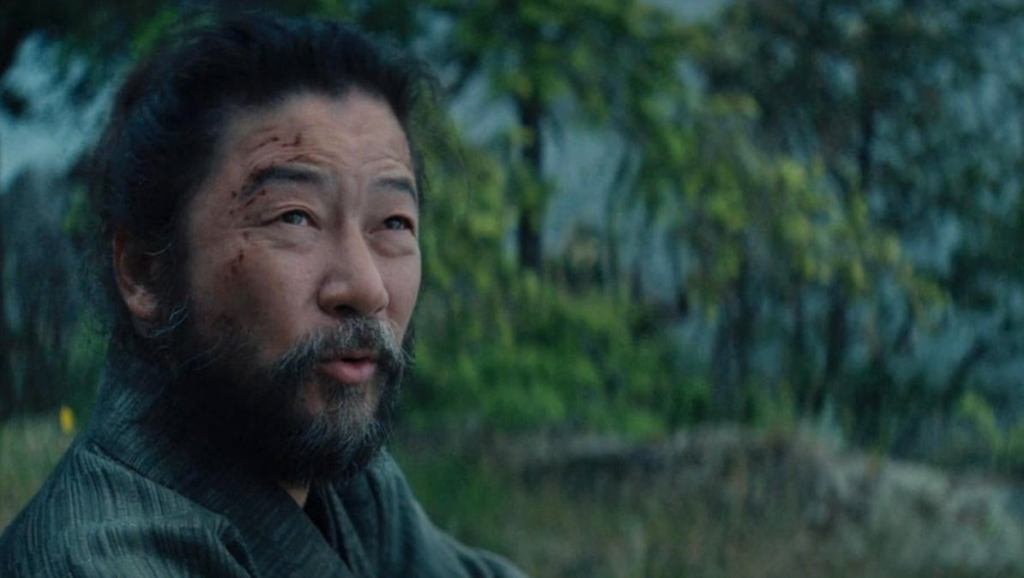
The climax of Shōgun’s finale sees Lord Kashigi Yabushige (Tadanobu Asano) commit seppuku (ritual suicide) for betraying his Lord Yoshii Tornaga (Hiroyuki Sanada) and causing Lady Mariko’s (Anna Sawai) death.
With Toranaga acting as Yabushige’s second, the two men have a final private chat. Toranaga confides in Yabu that his plan for winning the war against Ishido and the Council of Regents has been fulfilled through the backlash to Mariko’s death. However, when Yabu begs to know if Toranaga had always planned to seize power and become Shōgun, Toranaga refuses by asking “Why tell a dead man the future?”
That same question is what Yabu asked about Tornaga in Episode 1 when telling his nephew (and successor) Omi that he would not tell Toranaga about Blackthorne’s ship arriving, as Toranaga was going to be killed by the Council of Regents. That arrogance came back to bite Yabushige in the butt, and Toranaga was extra petty for sending him off that way.
“No Translator.”
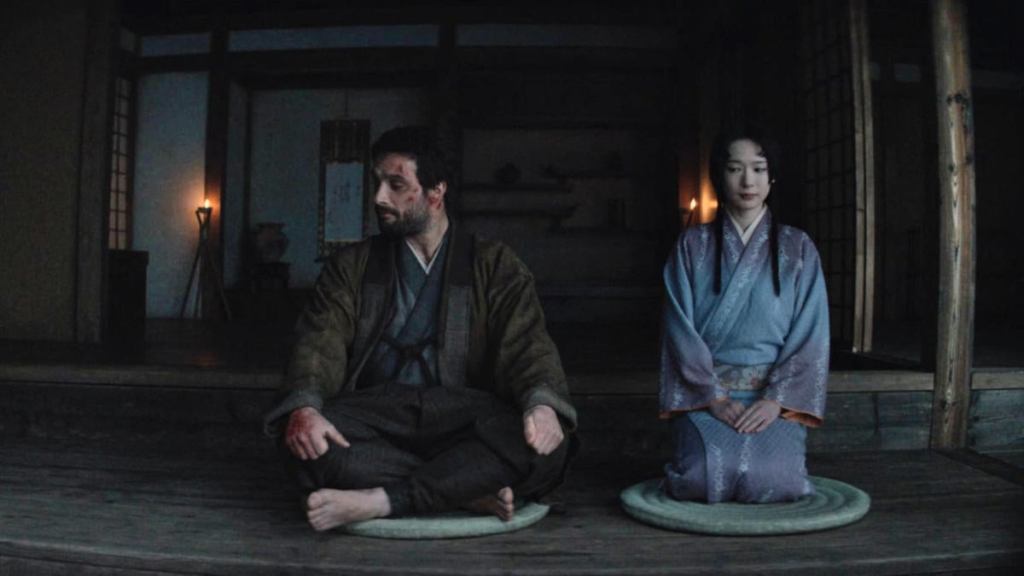
Shōgun Episode 10 has some deeply powerful moments of quiet, visual metaphor – such as the one above. When Blackthorne first came to Ajiro and was given the title and fiefdom of a “hatamoto,” he struggled to settle into Japan’s domestic customs. However, Blackthorne had help from Mariko, his consort Usami Fuji (Moeka Hoshi), and even elderly gardner Uejirou, learning the Japanese point of view of the world, and the deeper cultural philosophies and traditions its people follow. Blackthorne found balance with having both Mariko and Fuji-sama beside him (literally), as the trio often sat on the deck of his house, overlooking the Zen garden.
The Shōgun finale reminds us multiple times that Blackthorne’s house is no longer a home – and the heartbreaking sight of Mariko no longer being there – the space of her absence – was more devastating than any death scene. The fact that all Blackthorne could manage in Japanese were the words “No translator.” just drove the knife home into our hearts.
Hearing Rocks
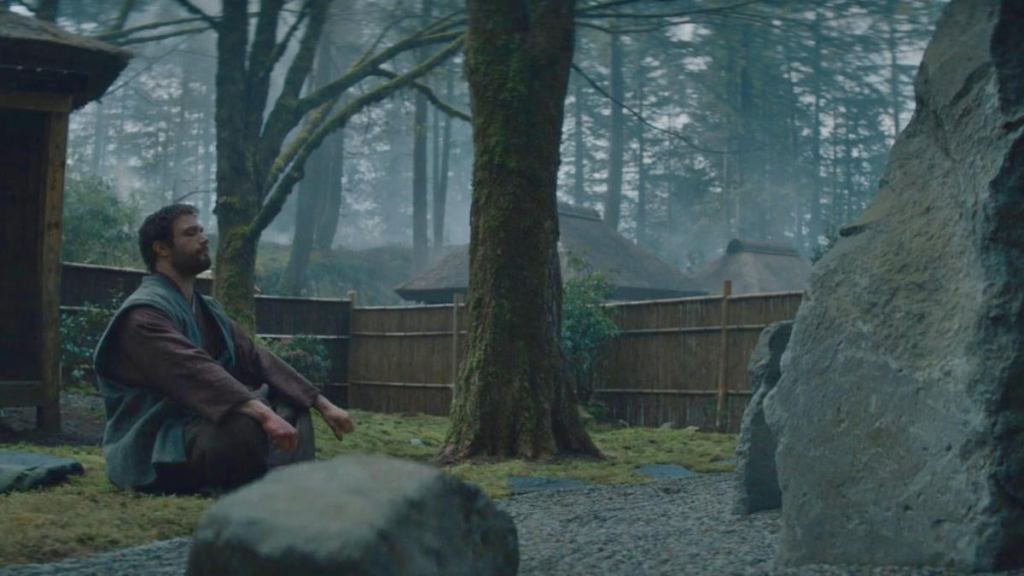
In Shōgun Episodes 4 and 5 Blackthorne got a crash course in Japanese culture. While trying to settle in Ajiro, Blackthrone learned the importance of his house’s Zen garden, by way of elderly gardener Uejirou, and Mariko, who explains the philosophy of spiritual tuning by talking about hearing rocks.
That mindstate is something that Blackthorne tries to understand and achieve for most of Shōgun’s run. In Episode 10, it’s pretty clear that Mariko’s death finally gets him into the headspace that once baffled him, as we see Blackthorne finally communing with the rocks in his garden.
Death Prep
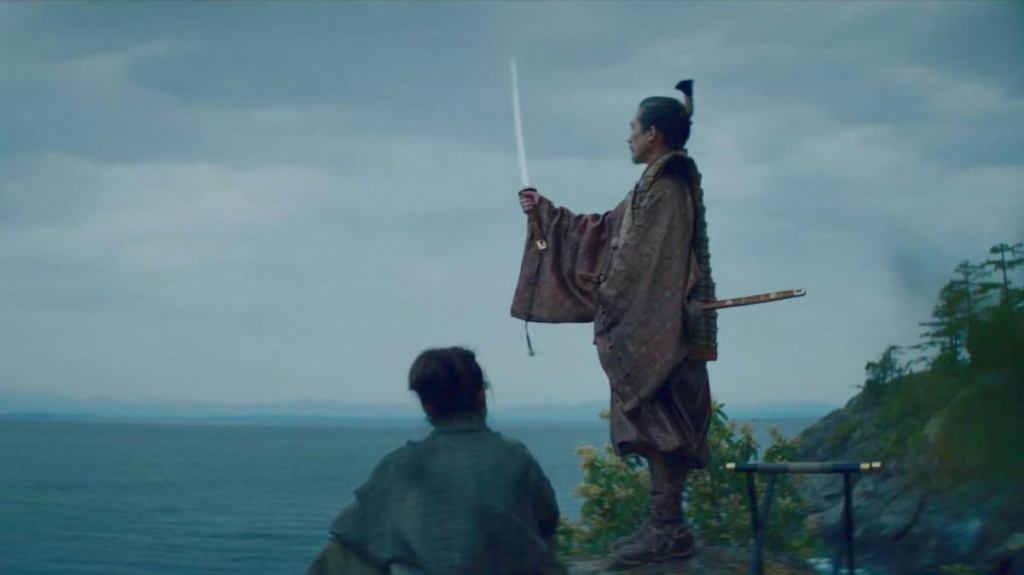
Yabushige was obsessed with his own death during Shōgun, torturing others to see their death response, and constantly re-writing his own will. In Episode 10, Yabushige’s final moment finally arrives – and the duplicitous lord is fully prepared, handing his servant a final copy of his will, and reciting his death poem for his nephew and successor Omi.
Yabu had always been ready to die. And he proved it.
Knowing The Plan
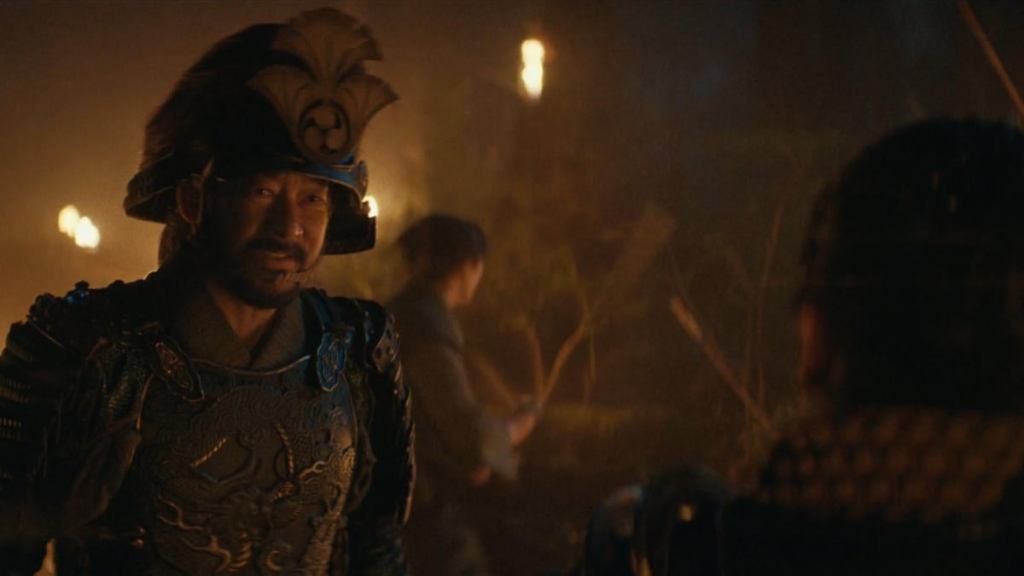
Yabushige was constantly vexed over being left in the dark about Toranaga’s plans. In Episode 3’s big ‘Escape from Osaka’ sequence, Yabushige was as surprised as anyone to learn that Toranaga had smuggled himself out of Osaka Castle. During the heat of battle Yabu asked Toranaga if, at least one time, he could be let in on the plan before it happened. Well, in Yabushige’s final moments Toranaga ‘graciously’ grants his request: he tells Yabu how he’s already managed to win the coming war – before cutting Yabushige’s head clean off.
Flowers Are Flowers
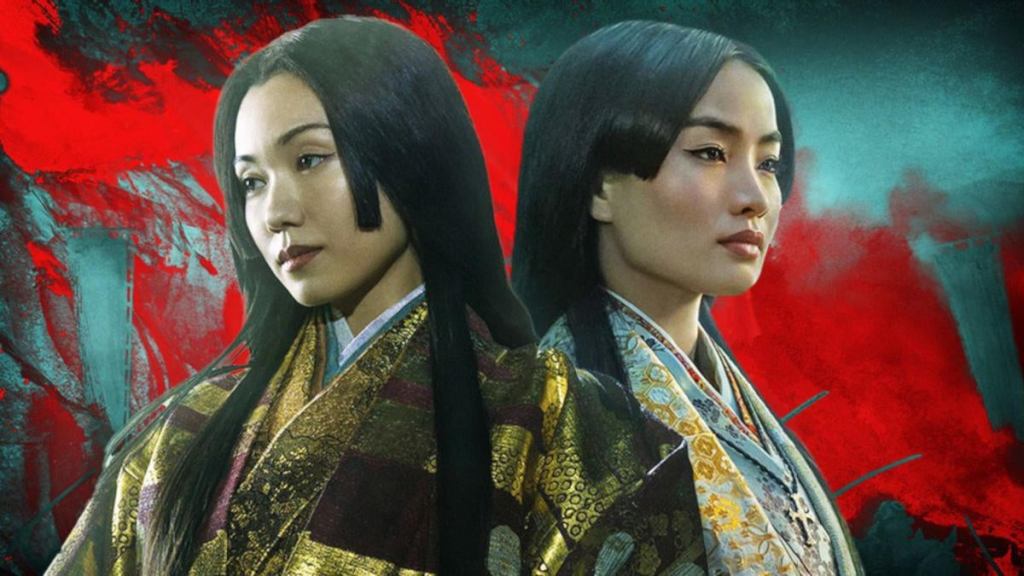
One of Shōgun’s biggest twists hinged on poetry. True story.
In her final meeting with childhood friend-turned-rival Ochiba no Kata, Mariko put her famed poetry skills to use by composing lines about a leafless branch, and flowers only being flowers “because they fall.”
After Mariko’s death, the Taikō’s heir is perplexed about the poem, urging Ochiba to finish it. The lines from Mariko clearly speaks to their shared childhood of trauma and disgrace; when Ochiba adds “thankfully, the wind,” it’s a metaphor that indicates how Mariko has made Ochiba realize that their “fall” could become an opportunity for change.
“A Dream of a Dream”
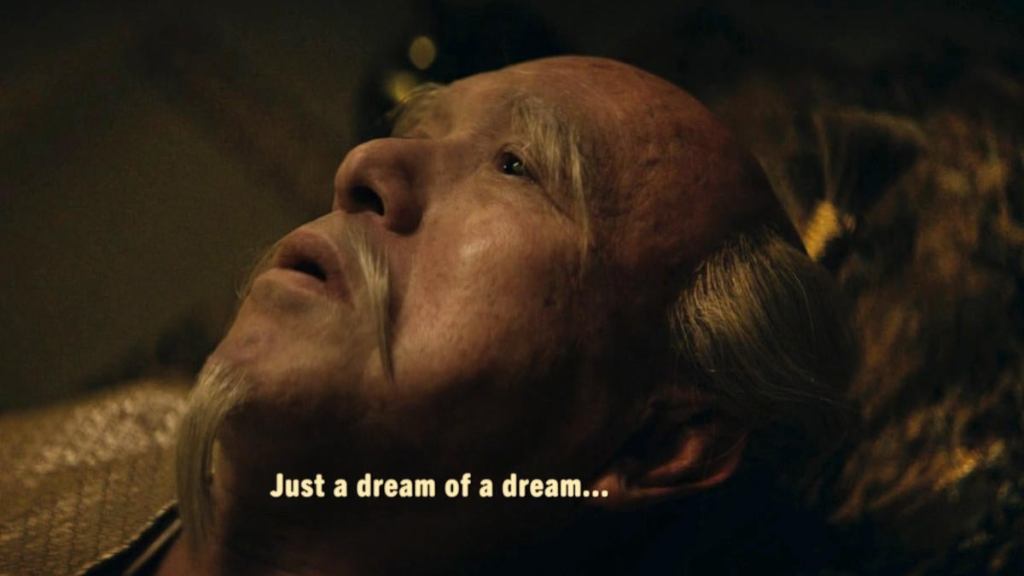
The title of Shōgun’s finale was a callback to a pivotal opening scene flashback in Episode 2, where the Taikō died. Some of the ruler’s last words were that life is strange, and he compared it to being a “dream of a dream.”
Well, the trauma and grief experienced in Shōgun’s finale had the characters (and viewers) feeling like life was surreal in Mariko’s absence. Then again: those sequences of an elderly Blackthorne literally made it seem like this life – and show – could be just a dream within a dream.
Grief Counselor
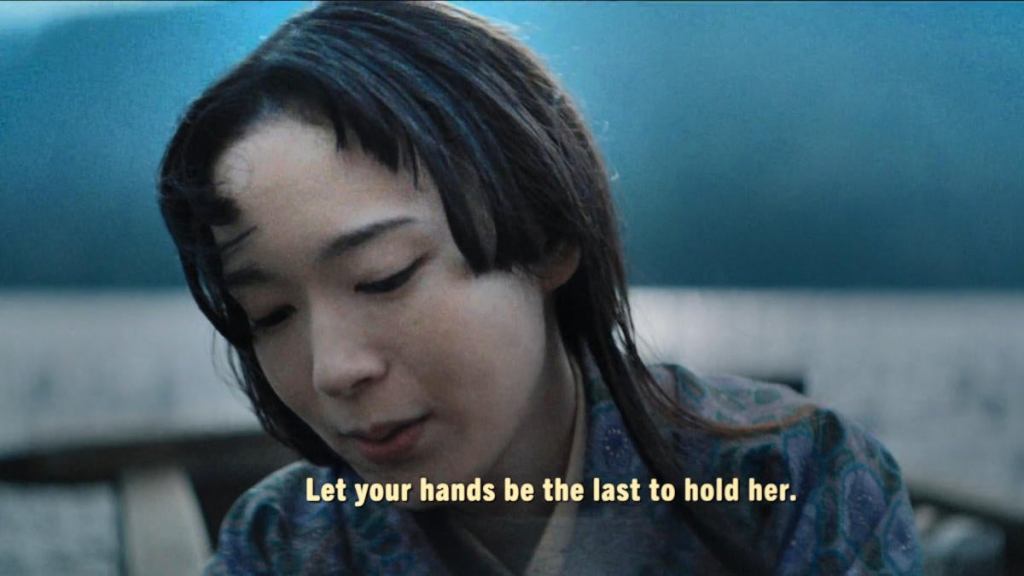
Fuji-sama (Moeka Hoshi) has been one of the biggest MVP’s of Shōgun, and like the character, her arc got a quiet, humble, but utterly dignified and badass ending.
Fuji-sama came into Shōgun’s story as a woman having to bear unbearable grief out of duty. In the Finale Episode, she goes from being crushed under the weight of grief to being the hands that lift that weight of John Blackthorne, in their shared mourning during a sea burial ritual. Fuji was able to finally let go of her dead husband and son, and she helped Blackthorne say goodbye to Mariko.
Stories of redemption and perseverance come in many forms, and Fuji-sama’s was EPIC.
Winning Is The Point
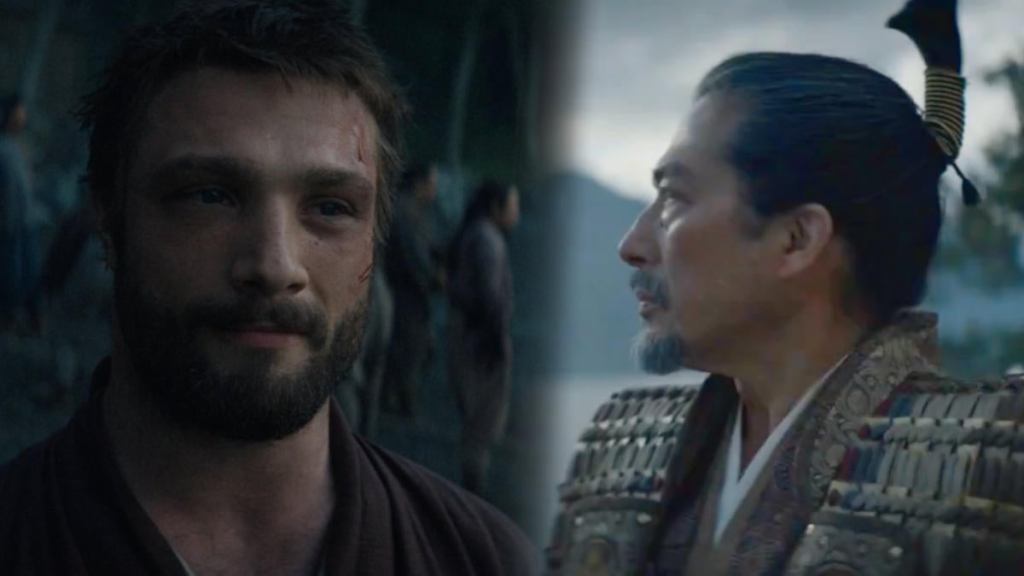
The final scene of Shōgun finally brings the thematic arc home between main characters John Blackthrone and Toranaga. Toranaga confesses to Yabushige that he spared Blackthorne and admired him out of a sort of kinship he felt. Blackthorne defied all odds in his pursuits of victory – a trait Toranaga greatly admired. By the end of Shōgun, Toranaga had learned to be a bit more like Blackthrone, while Blackthorne came to understand the mindstate, will, and sacrifice needed to achieve that victory he was chasing. Both men acknowledge their bond and shared understanding with a simple head nod to one another – the only gesture that status and custom will ever allow them to make.








